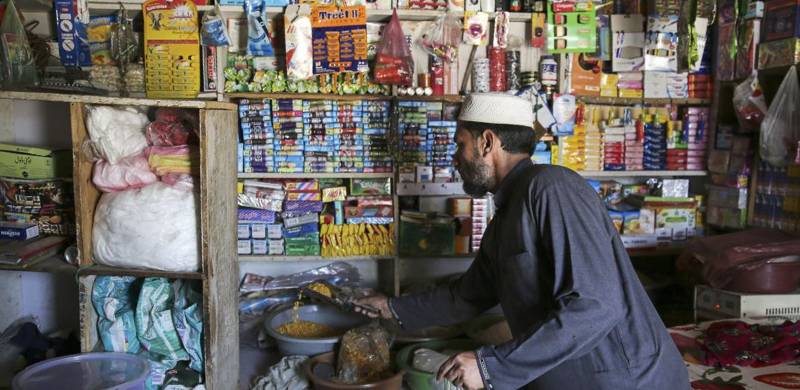
The Finance Ministry has suggested 'blurred growth prospects' for the country, hinting at the continuation of economic hardships and inflation that may exceed 15% from Friday onward when the new fiscal year commences.
The ministry’s Economic Adviser’s Wing (EAW) said in its Monthly Economic Update for June & Outlook that despite achieving a growth rate of 5.97% in the current fiscal year, the imbalances due to the ongoing domestic and international instability render an insignificant growth outlook, reported Dawn News.
"Despite achieving the growth of 5.97pc in FY2022, the underlying macroeconomic imbalances associated with domestic and international risks are making growth outlook indistinct.”
The EAW also cautioned that the State Bank of Pakistan's policy of demand management was likely to have limited success due to supply side constraints and higher international fuel prices, and in fact may further erode income.
“Economic growth in Pakistan is facing challenging situation due to wider macroeconomic imbalances,” the report said, while also mentioning that the current account deficit may decrease this fiscal year.
The report also said that the delay in pass-through of international oil prices into domestic energy products was likely to increase inflation, however the inflationary pressure was also expected to decrease once the international commodity price went down and stabilized.
It also maintained that the withdrawal of energy and fuel subsidies by the government resulted in a steep rise in prices of all petroleum products.
“Further, the recent rise in international commodity prices, especially energy and food, will also be translated into domestic prices,” it conceded
The ministry’s Economic Adviser’s Wing (EAW) said in its Monthly Economic Update for June & Outlook that despite achieving a growth rate of 5.97% in the current fiscal year, the imbalances due to the ongoing domestic and international instability render an insignificant growth outlook, reported Dawn News.
"Despite achieving the growth of 5.97pc in FY2022, the underlying macroeconomic imbalances associated with domestic and international risks are making growth outlook indistinct.”
The EAW also cautioned that the State Bank of Pakistan's policy of demand management was likely to have limited success due to supply side constraints and higher international fuel prices, and in fact may further erode income.
“Economic growth in Pakistan is facing challenging situation due to wider macroeconomic imbalances,” the report said, while also mentioning that the current account deficit may decrease this fiscal year.
The report also said that the delay in pass-through of international oil prices into domestic energy products was likely to increase inflation, however the inflationary pressure was also expected to decrease once the international commodity price went down and stabilized.
It also maintained that the withdrawal of energy and fuel subsidies by the government resulted in a steep rise in prices of all petroleum products.
“Further, the recent rise in international commodity prices, especially energy and food, will also be translated into domestic prices,” it conceded

